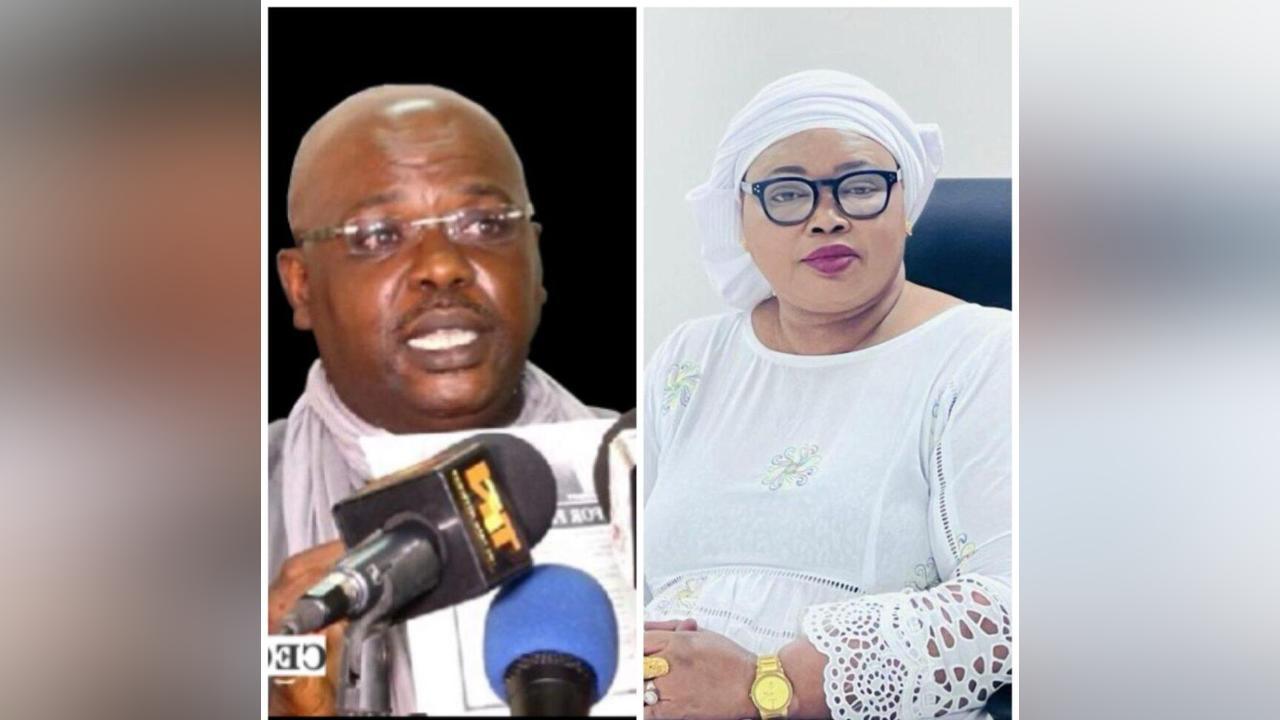Africa-Press – Gambia. Mayor Rohey Malick Lowe and former Banjul City Council (BCC) CEO Mustapha Batchily have come under scrutiny before the Local Government Commission of Inquiry for authorizing the disbursement of millions of Dalasi in donations and support to individuals and groups without following established procedures.
The two officials appeared before the commission twice this month as part of an ongoing investigation into financial irregularities in local councils between 2018 and 2023, with a particular focus on procedural failings in the allocation of council funds.
Mayor Lowe explained to the commission that all donations were drawn from budgeted council allocations, such as those earmarked for religion and culture. She stated that requests from individuals or groups for donations were directed to the council, after which she would consult with the CEO. The CEO, in turn, would verify fund availability with the finance unit before approval.
Regarding the determination of donation amounts, Mayor Lowe indicated that CEO Batchily would advise her on what was feasible within the council’s financial capacity.
Batchily confirmed the process, stating, “If donations come to the council through the mayor’s office. Normally, she will write and make a comment like in the vouchers you have seen, and in some instances, she will call me and ask if there is any feasibility, and we talk to the director of finance.”
During the hearing, Counsel Gomez presented a specific voucher showing a payment of 279,550 Dalasi made as the council’s contribution toward the 5th anniversary of Banjul City’s carnival. Attached to the voucher was a minute from Mayor Lowe to CEO Batchily instructing that the amount be disbursed promptly. When asked how this figure was determined, Batchily was quiet to respond, prompting Mayor Lowe to clarify that the budget was discussed with the CEO, finance director, and the youth group involved to establish a feasible amount.
Counsel Gomez emphasized that the inquiry was not about whether the council should provide support, which is a core council function, but rather about whether proper procedures were followed to prevent potential fraud.
“We are not here to say whether the council should support or not these groups. That is one of the primary functions of the council. We are discussing the procedure because when the procedure is wrong, like the law said, you open doors for fraud,” Counsel Gomez told the mayor.
When questioned why no committee was formed to oversee donation requests instead of decisions being made solely by the mayor and CEO, Mayor Lowe responded that while committees existed within the council, there was no specific committee designated for such matters. She noted this approach was the established practice at the council.
However, Counsel Gomez highlighted conflicting statements, noting that Batchily had advised the formation of a committee—mainly for education sponsorships—which was never established. Batchily confirmed this, while Mayor Lowe maintained she had not received such advice, stating that the recommendation for a scholarship committee came from auditors.
Batchily acknowledged his earlier statement, confirming: “Yes, at some point I have advised her about the need to have a committee that was mostly in relation to the education sponsorship, but the committee was not formed.”
Mayor Lowe stated that she had never received such advice from Mr. Batchily, adding that the recommendation to establish a scholarship committee originated from the auditors.
At that point, Counsel Gomez addressed the mayor, saying, “Here, one is confused, are these donations from the mayor or donations from the council? The people that you give this money to think it is from you. When they write letters of acknowledgment, they write back to you to thank you. So we are confused whether it is the council’s initiative or the mayor’s.”
Mayor Lowe stated that it was the council that made the donation, emphasizing that the remarks being made were merely the Counsel’s personal opinions. However, Counsel Gomez countered, asserting that his claims were not opinions but based on evidence—specifically, acknowledgments from beneficiaries who had personally thanked the Mayor for the funds.
“I don’t see most of their acknowledgment letters but even if they write it like that that does not mean they do not know the help is from the council because if they need help from me personally, they will come to my home, but they come to the council and I will minute to the CEO,” she explained.
Counsel Gomez informed Mayor Lowe that 98% of the donation requests reviewed were addressed directly to her. In response, Mayor Lowe said she had previously requested that such correspondence be directed to the Chief Executive Officer (CEO), but Mr. Batchily insisted they be addressed to the mayor instead.
Mr. Batchily confirmed this, explaining that he believed donation and outreach matters fell outside his administrative responsibilities. However, Counsel Gomez countered that this was incorrect and not consistent with standard procedures, which Mr. Batchily was well aware of.
Mayor Lowe acknowledged that there have been significant changes at the Banjul City Council (BCC), admitting that mistakes were made in the past. She stated that the Council has since made substantial improvements in its operations, which she said will be reflected in the upcoming audit report.
For More News And Analysis About Gambia Follow Africa-Press






